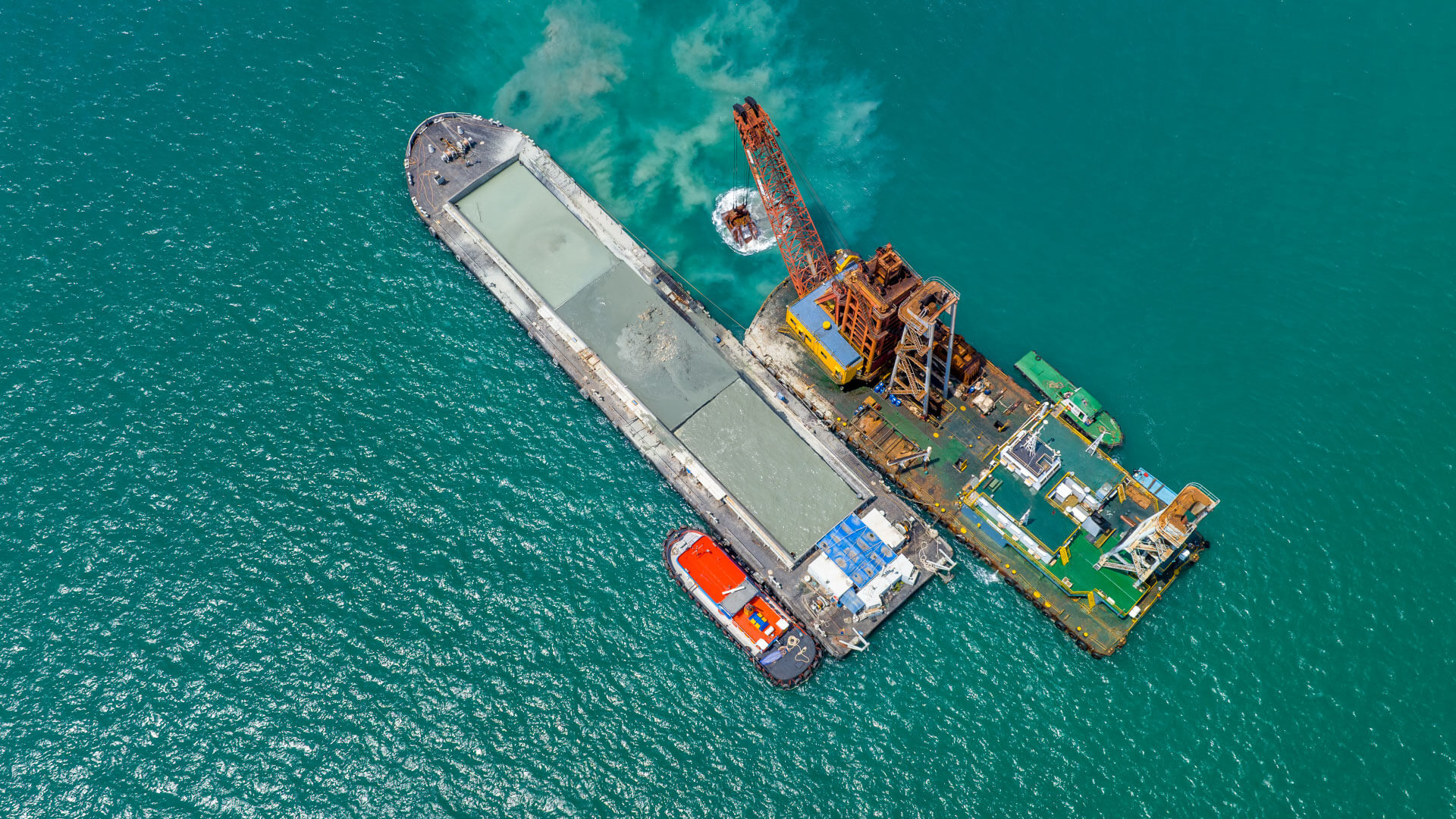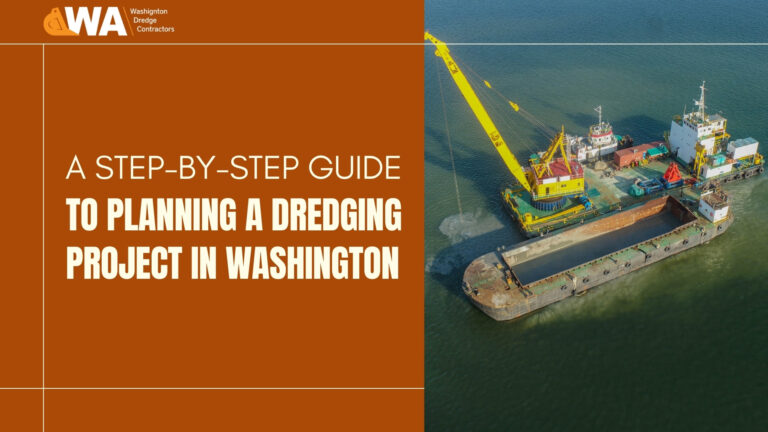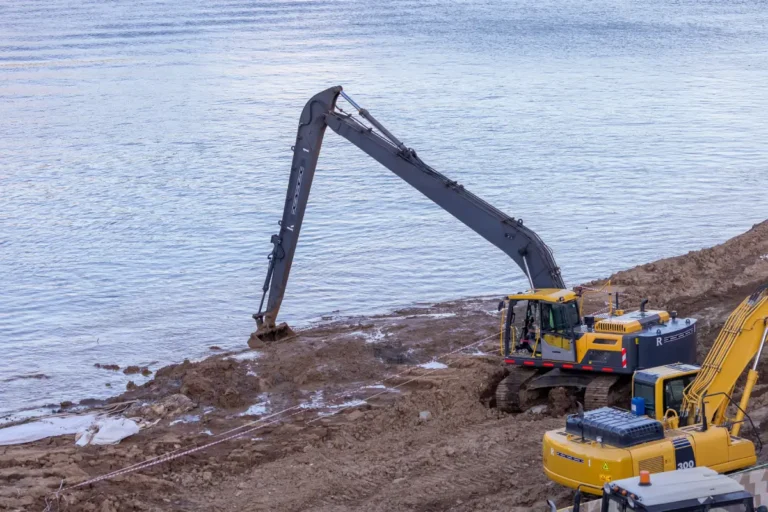Dredging plays a critical role in maintaining and developing waterways supporting industries such as marine construction, mining, environmental restoration, and large-scale infrastructure projects. Whether it’s deepening harbors for larger vessels, reclaiming land, or restoring ecosystems affected by sediment buildup, the services provided by dredging companies are essential for economic growth and environmental sustainability.
Professional dredging contractors bring expertise, advanced equipment, and proven methodologies to ensure dredging projects are completed efficiently and in compliance with regulatory standards. From hydraulic and mechanical dredging to specialized sediment removal techniques, experienced contractors help mitigate risks, optimize productivity, and achieve project goals while minimizing environmental impact.
Selecting the right dredging company is crucial for project success. Factors such as industry experience, equipment capabilities, regulatory compliance, and project-specific expertise should all be considered. Additionally, consulting with a knowledgeable dredging consultant can provide valuable insights into site assessments, feasibility studies, and project planning, ensuring that the chosen dredging strategy aligns with technical and environmental requirements.
Understanding what to look for when hiring dredging companies can significantly improve project efficiency, cost-effectiveness, and long-term sustainability. The following sections outline key considerations to help decision-makers select the best dredging contractor or consultant for their specific needs.
Industry Experience and Expertise
Experience is one of the most critical factors to consider when hiring dredging companies. Dredging is a highly specialized field that requires technical expertise, advanced equipment, and in-depth knowledge of environmental regulations and site-specific challenges. A well-established company with a proven track record ensures that projects are executed efficiently, safely, and in compliance with regulatory requirements.
Working with experienced dredging contractors is essential for achieving project success, especially when dealing with specific dredging applications. Whether it’s environmental dredging to remove contaminated sediments, maintenance dredging to restore navigational channels, capital dredging for port expansion, or mining dredging for resource extraction, specialized expertise is necessary to ensure optimal results. Each type of dredging presents unique challenges, and an experienced contractor will have the skills and equipment needed to handle them effectively.
Evaluating past projects is a key step in assessing dredging companies’ capabilities. Reviewing case studies, client testimonials, and project portfolios provides insight into a company’s expertise, efficiency, and ability to manage complex dredging operations. Additionally, consulting with a professional dredging consultant can help assess whether a company has the right qualifications and experience for the specific project at hand. By analyzing previous work, project challenges, and outcomes, decision-makers can confidently select the right dredging partner for their needs.
Certifications, Licensing, and Compliance
When selecting dredging companies, it is crucial to ensure they hold the necessary certifications and comply with environmental and safety regulations. Dredging projects often involve sensitive ecosystems, navigational waterways, and government-mandated requirements that must be met to avoid legal and financial penalties. A professional dredging company should be fully licensed and operate under stringent industry standards to guarantee safe and effective project execution.
Key certifications and regulatory standards vary depending on the region and type of dredging work. In the United States, for example, dredging contractors must comply with guidelines set by the U.S. Army Corps of Engineers (USACE) and the Environmental Protection Agency (EPA) to ensure that dredging activities do not negatively impact marine habitats or water quality. Additionally, adherence to Occupational Safety and Health Administration (OSHA) standards is essential to maintain worker safety during dredging operations. Many reputable dredging companies also obtain ISO 9001 and ISO 14001 certifications, which demonstrate commitment to quality management and environmental responsibility.
Navigating complex compliance requirements can be challenging, particularly for large-scale or environmentally sensitive dredging projects. Hiring a dredging consultant can help streamline the process by providing expertise in regulatory assessments, permit applications, and compliance strategies. A knowledgeable consultant can evaluate project risks, ensure proper documentation, and recommend best practices to align with local, national, and international regulations. By working with certified and compliant dredging contractors, project owners can mitigate legal risks, uphold environmental stewardship, and ensure project success.
Dredging Equipment and Technology
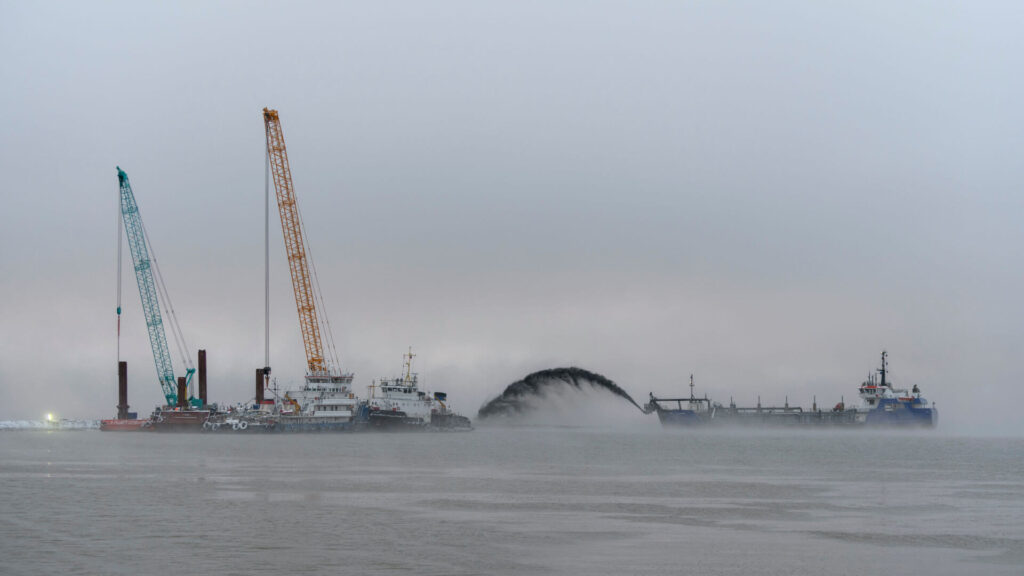
Modern dredging projects demand efficiency, precision, and sustainability, which heavily depend on the quality of equipment used by dredging companies. Advanced dredging equipment plays a vital role in optimizing operations, reducing environmental impact, and ensuring the timely completion of projects. Companies that invest in cutting-edge dredging technology can more effectively handle complex dredging requirements, improving productivity while minimizing disruptions to surrounding ecosystems.
When evaluating dredging contractors, it’s essential to assess whether they own and operate state-of-the-art equipment tailored to the specific needs of the project. Different dredging methods require specialized machinery, including:
- Cutter suction dredgers (CSDs): Ideal for hard-packed sediments and large-scale excavation projects.
- Hopper dredgers: Best suited for deep-water dredging and sediment transport.
- Submersible slurry pumps: Highly efficient for pumping high-density materials over long distances.
- Auger and jetting dredgers: Used for precise dredging in environmentally sensitive areas.
The integration of advanced dredging technology has further enhanced the efficiency and accuracy of dredging operations. GPS tracking and real-time monitoring systems allow dredging companies to maintain precise excavation depths and positioning, reducing over-dredging and improving cost control. Additionally, automation in dredging operations enhances safety by minimizing human intervention in hazardous environments.
For companies unsure about the best equipment for their project, consulting with a dredging consultant can provide valuable insights. A knowledgeable consultant can assess project requirements, recommend the most suitable dredging technology, and help ensure that the selected dredging contractor possesses the necessary equipment and expertise to execute the job efficiently. Investing in the right dredging technology not only improves project performance but also ensures long-term sustainability and compliance with environmental regulations.
Project-Specific Capabilities
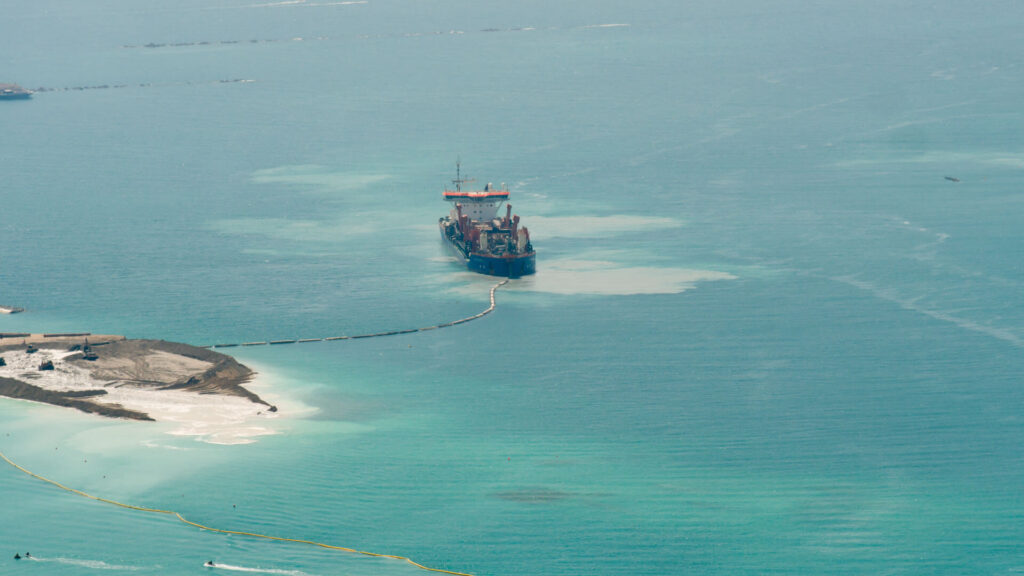
Not all dredging companies specialize in the same type of work, making it essential to choose a contractor with expertise in the specific dredging project required. Different dredging applications demand unique skill sets, equipment, and regulatory knowledge. Whether the project involves maintenance dredging for navigational channels, capital dredging for port expansions, environmental dredging for contaminated sediment removal, or mining dredging for resource extraction, selecting the right dredging contractor ensures efficient and compliant execution.
One key consideration in project planning is determining whether the work involves inland or offshore dredging. Inland dredging projects—such as those in lakes, rivers, and reservoirs—often require precision dredging techniques and specialized equipment to minimize ecological disruption. Offshore dredging, on the other hand, typically involves large-scale sediment removal, land reclamation, or deep-sea excavation, necessitating high-capacity dredgers capable of handling challenging marine conditions.
A dredging consultant plays a crucial role in assessing project feasibility and selecting the most effective dredging method. By conducting site evaluations, sediment analysis, and environmental impact assessments, a consultant can help project owners determine the most efficient approach while ensuring compliance with local and international regulations. Additionally, they can assist in contractor selection, helping to identify dredging companies with the specific capabilities required for successful project execution.
Choosing a dredging contractor with the right expertise for the project type reduces risks, improves efficiency, and ensures that the dredging process aligns with industry best practices and environmental sustainability goals.
Environmental Considerations and Sustainability
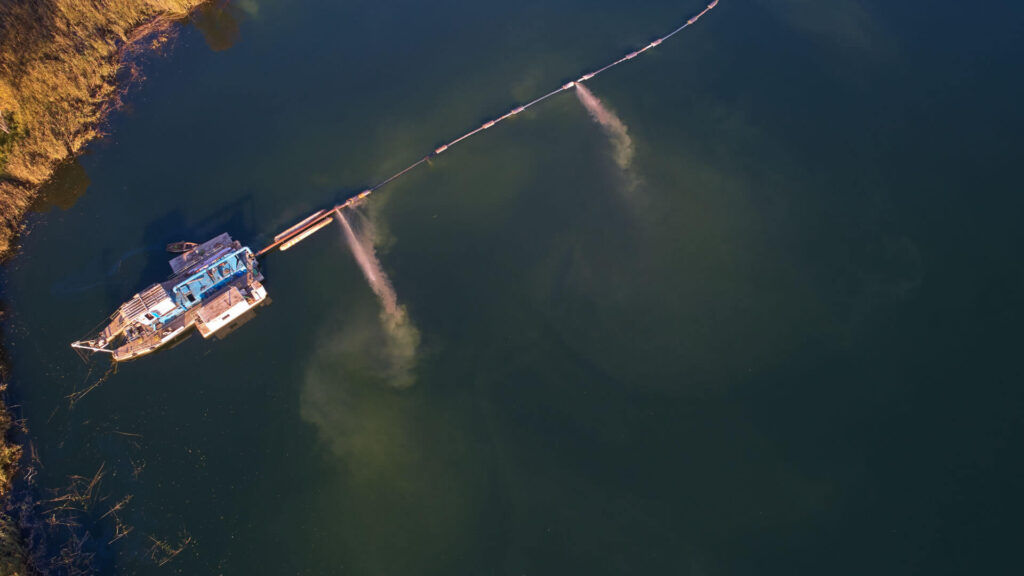
Environmental responsibility is a critical factor when selecting dredging companies, as dredging activities can significantly impact aquatic ecosystems, water quality, and sediment distribution. Hiring a dredging contractor that prioritizes sustainability ensures that dredging projects are conducted with minimal environmental disruption while complying with strict regulations.
Modern dredging techniques have evolved to mitigate ecological impacts, making it possible to achieve project goals while protecting marine and freshwater environments. Advanced dredging methods help:
- To minimize turbidity, Sediment resuspension is controlled using precision dredging techniques, silt curtains, and environmentally friendly cutter heads.
- Protect aquatic life: Many dredging contractors implement habitat assessments and seasonal timing restrictions to avoid disturbing fish spawning grounds and other sensitive ecosystems.
- Reduce waste disposal impacts: Innovative dredging technologies enable sediment reuse for land reclamation, wetland restoration, and beach nourishment rather than traditional disposal in offshore sites or landfills.
A dredging consultant can provide expert guidance on developing and implementing eco-friendly dredging solutions. By conducting environmental impact assessments and advising on best practices, a consultant helps ensure that dredging operations align with sustainability goals and regulatory requirements. Their expertise is invaluable in recommending sediment management strategies, selecting low-impact dredging techniques, and optimizing dredging schedules to minimize ecological disturbances.
Choosing an environmentally responsible dredging company protects natural resources and enhances the long-term viability of waterways, harbors, and coastal infrastructure. By integrating sustainability into dredging operations, project owners can achieve operational efficiency while upholding environmental stewardship.
Cost and Budget Considerations
Understanding the cost structure of dredging companies is essential for project planning and execution. Dredging is a capital-intensive process that requires specialized equipment, skilled labor, and careful project management. While cost efficiency is a priority, selecting a dredging contractor based solely on the lowest bid can lead to unexpected expenses, project delays, or subpar results.
Several key factors influence the cost of hiring a dredging company, including:
- Equipment mobilization and demobilization: Transporting dredging equipment to and from the project site can be a significant expense, especially for remote or offshore locations.
- Material type and volume: The density and composition of the material being dredged (e.g., fine silt vs. hard-packed clay) affect the project’s complexity and duration.
- Project size and complexity: Larger, more complex projects, such as deepening navigation channels or environmental remediation, require specialized dredging techniques, which increases costs.
- Regulatory compliance: Permitting, environmental impact mitigation, and waste disposal add to the overall project expenses.
When hiring dredging contractors, it is critical to balance cost with quality and efficiency. While lower bids may seem attractive, they often involve risks such as outdated equipment, inexperienced operators, or insufficient project planning. Investing in a reputable company with a proven track record ensures higher productivity, reduced risk of delays, and compliance with safety and environmental regulations.
A dredging consultant can provide valuable insight into cost estimation, helping project owners develop accurate budgets and avoid hidden expenses. Consultants assess project feasibility, recommend cost-effective dredging methods, and ensure that the selected dredging contractor delivers the best value for the investment. By making informed financial decisions, stakeholders can achieve successful dredging outcomes without compromising on quality or efficiency.
Reputation and Client Testimonials

Dredging companies’ reputations are key indicators of their reliability, efficiency, and quality of work. A company’s track record speaks volumes about its ability to deliver successful dredging projects on time, within budget, and in compliance with industry regulations. Researching a dredging contractor’s reputation ensures that project owners work with an experienced and trustworthy team capable of handling complex dredging challenges.
One of the most effective ways to evaluate dredging contractors is by reviewing client testimonials, case studies, and industry referrals. Positive customer feedback demonstrates the contractor’s ability to meet project expectations and navigate challenges effectively. When assessing a company’s reputation, consider the following:
- Online reviews and ratings: Check industry directories, business listings, and professional forums for feedback from past clients.
- Project portfolios and case studies: Reputable dredging companies often showcase their previous projects, detailing the scope, challenges, and successful outcomes.
- Referrals and word-of-mouth recommendations: Consulting with industry peers or hiring a dredging consultant can provide unbiased insights into a company’s reliability, work quality, and customer service.
- Certifications and industry recognition: Awards, certifications, and partnerships with government agencies or private-sector clients further validate a company’s credibility.
A professional dredging consultant can also help vet potential dredging contractors by conducting background research, verifying past performance, and ensuring they align with project-specific requirements. By choosing a dredging company with a solid reputation, project owners can minimize risks and confidently move forward with their dredging needs.
Contract Terms and Risk Management
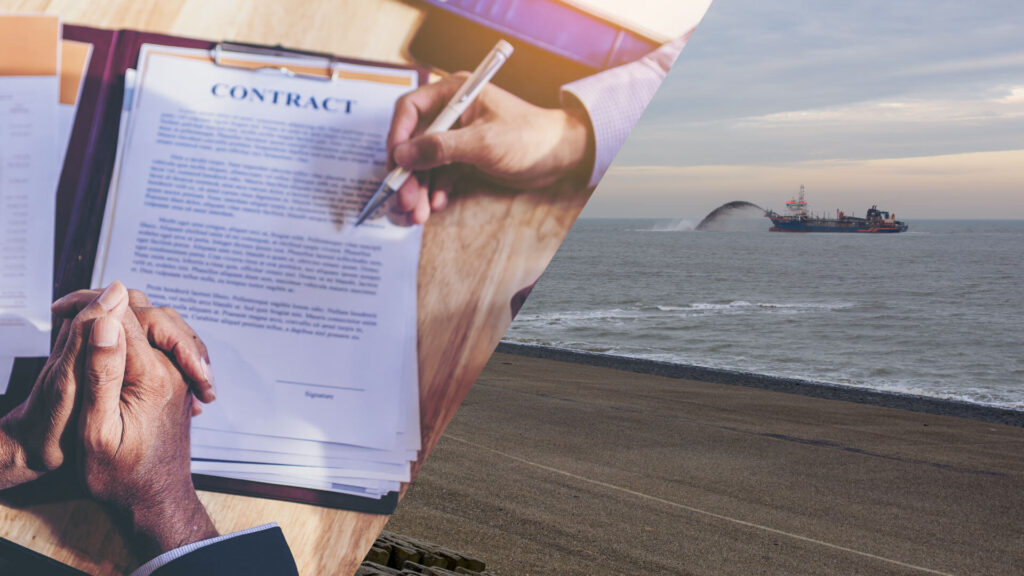
When hiring dredging companies, ensuring a well-structured contract is crucial for minimizing risks and avoiding project disputes. Dredging projects involve significant financial investments, regulatory requirements, and environmental considerations, making it essential to define clear contract terms before work begins. A comprehensive agreement protects both the project owner and the dredging contractor, ensuring transparency, accountability, and legal compliance.
Key contract elements to consider when working with dredging contractors include:
- Scope of work: Clearly defining dredging requirements, including project depth, material removal volume, and disposal methods.
- Project timelines: Establishing firm start and completion dates with provisions for weather delays or unforeseen site conditions.
- Contingencies and change orders: Addressing potential modifications to the project scope and outlining procedures for handling unexpected challenges.
- Payment terms: Specifying pricing structures, milestone payments, and cost adjustments for extended work periods.
- Environmental and regulatory compliance: Ensuring adherence to local, state, and federal guidelines to prevent legal and environmental violations.
Another critical aspect of risk management is securing insurance coverage, liability protection, and performance guarantees. A reputable dredging company should provide proof of liability insurance, workers’ compensation, and coverage for potential damages to nearby structures, waterways, or ecosystems. Performance guarantees help ensure that the contractor delivers results that align with contract specifications, reducing financial risks for the project owner.
A dredging consultant can play a vital role in contract negotiations by evaluating risk factors, reviewing legal terms, and ensuring that all contractual obligations align with industry best practices. Consultants can also assist in assessing potential dredging contractors, verifying their qualifications, and mitigating project risks before commitments are made. By thoroughly vetting contracts and managing liabilities, stakeholders can ensure smooth and successful dredging operations.
Communication and Project Management
Effective communication and strong project management are essential for the successful execution of dredging projects. Clear and consistent communication between dredging companies and clients ensures that project objectives, expectations, and potential challenges are addressed proactively. Without proper coordination, dredging operations can face costly delays, regulatory violations, or inefficiencies that impact the overall success of the project.
Working with professional dredging contractors who prioritize transparent communication helps streamline operations and prevent misunderstandings. Key aspects of effective communication include:
- Regular project updates: Providing detailed progress reports and real-time status updates to keep stakeholders informed.
- Clear documentation: Maintaining accurate records of permits, compliance measures, and operational data to ensure accountability.
- Dedicated points of contact: Assigning project managers or liaisons to facilitate seamless communication between all parties involved.
Strong project management practices are equally important to ensure that dredging operations are completed on time and within budget. Best practices for effective dredging project management include:
- Defining clear milestones and deliverables to track project progress.
- Implementing risk assessment strategies to anticipate and address potential delays.
- Utilizing advanced dredging technology such as GPS tracking and automated monitoring to improve efficiency and accuracy.
- Coordinating logistics and equipment mobilization to minimize downtime and maximize productivity.
A dredging consultant can facilitate smooth coordination between stakeholders, including contractors, regulatory agencies, and project owners. Consultants help align project goals with operational strategies, oversee compliance requirements, and ensure that communication flows effectively across all teams. By leveraging the expertise of a dredging consultant, clients can enhance project efficiency, reduce risks, and achieve optimal results with minimal disruptions.
Final Decision: Selecting the Right Dredging Partner
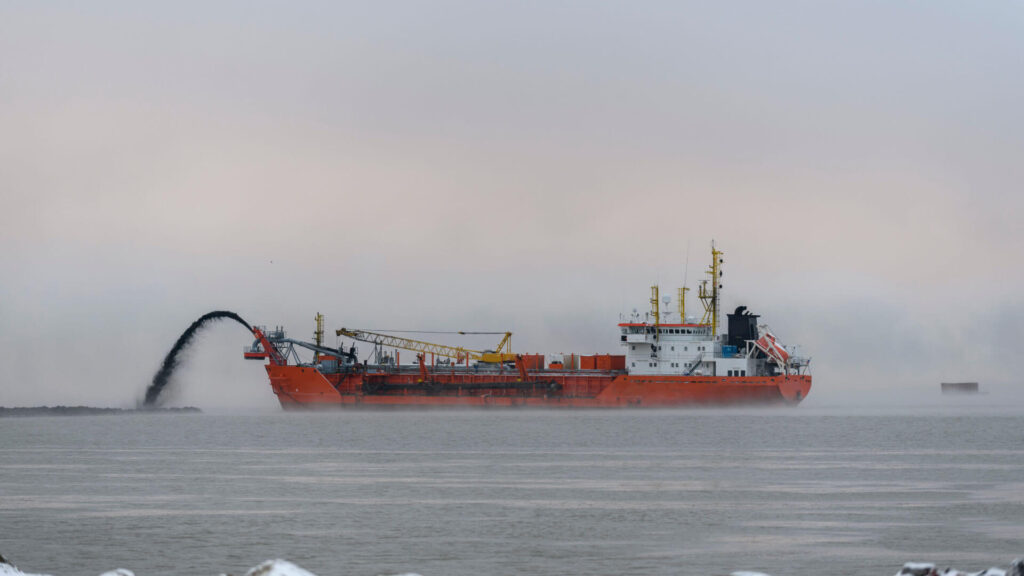
Choosing the right dredging company is a critical decision that impacts project success, efficiency, and long-term sustainability. With many dredging contractors available, it’s essential to evaluate key factors before making a final selection. From industry experience and equipment capabilities to compliance with regulations and environmental responsibility, hiring a well-qualified dredging partner ensures smooth project execution.
Checklist for Choosing the Right Dredging Contractor
Before committing to a dredging company, consider the following factors:
Industry experience and expertise: Does the contractor have a proven track record in the specific type of dredging required (e.g., maintenance, capital, environmental, or mining dredging)?
Certifications and regulatory compliance: Is the company fully licensed and certified by relevant authorities such as the U.S. Army Corps of Engineers, EPA, and OSHA?
Dredging equipment and technology: Does the contractor use advanced dredging equipment such as cutter suction dredgers, hopper dredgers, or submersible slurry pumps?
Environmental sustainability practices: Does the company prioritize eco-friendly dredging techniques to minimize ecological impact?
Project management capabilities: Can the dredging contractor provide a detailed project timeline, risk assessment, and contingency plans?
Reputation and client testimonials: What do previous clients say about the company’s performance, reliability, and efficiency?
Transparent pricing and cost structure: Is the contractor’s pricing model clear and aligned with project expectations?
Contract terms and risk management: Does the contract cover liability protection, insurance coverage, and performance guarantees?
When to Consult a Dredging Consultant
A dredging consultant can provide valuable guidance in selecting the right dredging company, particularly for complex or large-scale projects. Consider hiring a consultant if:
- You need assistance in evaluating multiple dredging contractors to determine the best fit.
- Your project requires feasibility studies, site assessments, or regulatory permit applications.
- You want to ensure the most cost-effective and environmentally responsible dredging approach.
- You need help with contract negotiations, risk management, or project oversight.
By thoroughly assessing potential dredging companies and leveraging expert advice from a dredging consultant, project owners can make informed decisions that lead to successful, cost-efficient, and sustainable dredging operations.


